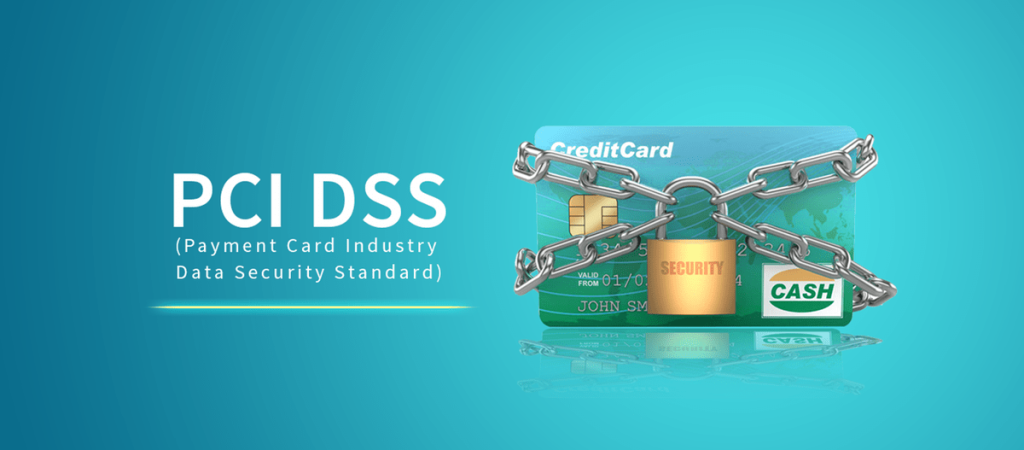Introduction
The Payment Card Industry Data Security Standard (PCI DSS) is essential for safeguarding cardholder data. PCI DSS 4.0, released on March 31, 2022, introduces significant updates reflecting the changing security landscape. This article outlines the key aspects of PCI DSS 4.0, its impact on businesses, and the steps required for compliance.
Understanding PCI DSS 4.0
PCI DSS 4.0 is the latest version of the security standard that all organizations processing, storing, or transmitting credit card information must follow. Compliance with PCI DSS isn’t just about meeting regulations; it’s crucial for protecting consumer data and ensuring trust in the payment ecosystem.
Key Changes in PCI DSS 4.0:
- Expanded Scope: The standard now covers a wider range of payment technologies, including mobile and contactless payments.
- Enhanced Authentication Protocols: Multifactor Authentication (MFA) is mandatory for all access points to cardholder data.
- Advanced Encryption Standards: Emphasis on end-to-end encryption to secure data throughout the payment process.
- Vendor and Third-Party Management: Stricter controls and continuous compliance verification for third-party service providers.
- Incident Response and Recovery: Updated guidelines require comprehensive incident response plans and data recovery strategies.
Compliance Deadlines and Phases
PCI DSS 4.0 introduces two key deadlines:
- March 31, 2024: Compliance with the first 13 requirements is mandatory.
- March 31, 2025: Full compliance with all requirements must be achieved.
Impact on Businesses
The shift to PCI DSS 4.0 affects businesses differently based on their size and payment environment complexity.
For Small and Medium-Sized Enterprises (SMEs):
- MFA Implementation: SMEs must upgrade authentication systems to include MFA, which may involve new software or hardware investments.
- Encryption Upgrades: Implementing end-to-end encryption may require significant changes to existing payment systems.
For Large Enterprises:
- Scalability: Large organizations must scale security measures across multiple locations and complex IT infrastructures.
- Continuous Monitoring: PCI DSS 4.0’s dynamic assessment requirement necessitates real-time security monitoring systems.

Importance of Early Compliance
Early compliance with PCI DSS 4.0 offers several benefits:
- Reduced Risk: Minimizes the chances of data breaches and associated penalties.
- Business Continuity: Ensures uninterrupted operations and prevents disruptions due to non-compliance.
- Competitive Advantage: A commitment to data security can differentiate businesses in the market.
Early Compliance Strategy Example:
A company processing payments through e-commerce and in-store channels could start with a comprehensive risk assessment. This involves evaluating current systems against PCI DSS 4.0 requirements, followed by prioritizing upgrades like implementing MFA and updating encryption protocols.
Key PCI DSS 4.0 Requirements
1. Multifactor Authentication (MFA):
MFA is now mandatory for all systems handling cardholder data. According to a 2023 study by VISA, 60% of data breaches could have been prevented with MFA.
2. Encryption Standards:
Encryption is critical for protecting cardholder data. PCI DSS 4.0 mandates Advanced Encryption Standards (AES) for data at rest and in transit. Mastercard reports that outdated encryption methods increase the risk of breaches by 30%.
3. Third-Party Vendor Management:
With greater reliance on third-party providers, PCI DSS 4.0 emphasizes continuous monitoring and verification of vendor compliance. Checkout.com notes that 45% of breaches are linked to third-party service providers.
Table 1: PCI DSS 3.2.1 vs. PCI DSS 4.0 Comparison
| Requirement | PCI DSS 3.2.1 | PCI DSS 4.0 |
|---|---|---|
| Multifactor Authentication | Required for critical systems only | Mandatory across all systems |
| Encryption Standards | Data in transit only | End-to-end encryption for all data |
| Scope of Compliance | Limited to cardholder data | Includes mobile and contactless payments |
| Third-Party Vendor Management | Basic controls | Continuous monitoring and verification |
| Dynamic Assessment | Not required | Mandatory continuous security assessment |

Steps to Achieve PCI DSS 4.0 Compliance
To achieve PCI DSS 4.0 compliance, businesses must:
- Conduct a Risk Assessment: Identify vulnerabilities in payment processing systems.
- Upgrade Authentication Systems: Implement MFA for all systems accessing cardholder data.
- Implement Advanced Encryption: Ensure all data transmissions and storage use AES encryption.
- Monitor Third-Party Vendors: Continuously verify third-party compliance with PCI DSS 4.0.
- Develop an Incident Response Plan: Create and regularly update an incident response and data recovery plan.
Table 2: Key Steps to PCI DSS 4.0 Compliance
| Step | Action | Timeline |
|---|---|---|
| Conduct Risk Assessment | Identify vulnerabilities | Q4 2023 |
| Implement MFA | Upgrade authentication systems | Q1 2024 |
| Advanced Encryption | Deploy AES encryption across all channels | Q2 2024 |
| Third-Party Vendor Monitoring | Set up continuous monitoring processes | Q3 2024 |
| Incident Response Plan | Develop and test incident response strategies | Q4 2024 |
The Role of Merchanto.org in PCI DSS 4.0 Compliance
For businesses navigating PCI DSS 4.0 complexities, partnering with experts can be crucial. Merchanto.org, an official partner of VISA and MasterCard, specializes in chargeback prevention and offers solutions aligned with PCI DSS 4.0 standards. Their expertise ensures businesses meet compliance requirements while protecting revenue streams. More details are available at Merchanto.org.
Conclusion
PCI DSS 4.0 is a significant advancement in payment security, with stricter requirements designed to protect cardholder data. Compliance is essential for safeguarding your business and maintaining customer trust. Understanding the key changes and taking proactive steps towards compliance will secure your operations and position your business for success in the evolving payment landscape.
Table 3: Benefits of Early PCI DSS 4.0 Compliance
| Benefit | Impact |
|---|---|
| Reduced Risk | Minimizes data breaches and associated costs |
| Business Continuity | Ensures uninterrupted operations |
| Competitive Advantage | Enhances brand reputation and customer trust |
| Cost Savings | Avoids last-minute rush and associated high costs |
Final Thoughts
PCI DSS 4.0 compliance is crucial for any business handling payment card data. Staying informed and taking the necessary steps towards compliance will protect your business from data breaches and ensure compliance with industry standards. Early preparation is key to a smooth transition and long-term success.



